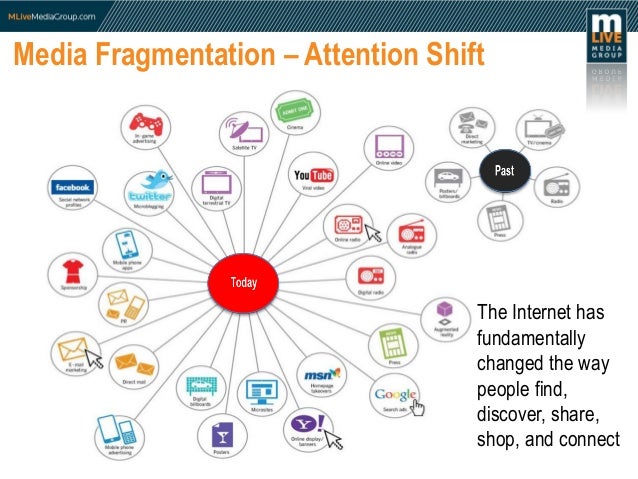Watching Who Guidelines the World On-line: A Free and Fragmented Panorama
Associated Articles: Watching Who Guidelines the World On-line: A Free and Fragmented Panorama
Introduction
With nice pleasure, we’ll discover the intriguing matter associated to Watching Who Guidelines the World On-line: A Free and Fragmented Panorama. Let’s weave attention-grabbing info and supply recent views to the readers.
Desk of Content material
Watching Who Guidelines the World On-line: A Free and Fragmented Panorama

The web, a boundless digital ocean, is dominated not by a single sovereign, however by a fancy and ever-shifting constellation of powers. Understanding who holds sway on this on-line world, and the way that energy is wielded, is essential for navigating its complexities and understanding its affect on our lives. Whereas no single entity definitively "guidelines," analyzing the important thing gamers – from governments and companies to people and communities – reveals a captivating and sometimes unsettling image. This exploration delves into the varied actors influencing on-line areas, analyzing their strategies and the results of their actions, all whereas acknowledging the inherently free and fragmented nature of the web itself.
The Leviathan of Authorities Management:
Governments worldwide exert vital affect over the web world, although their approaches differ dramatically. Authoritarian regimes typically make use of in depth censorship, surveillance, and management over web infrastructure, limiting entry to info and stifling dissent. China’s "Nice Firewall," for instance, blocks entry to quite a few web sites and social media platforms, whereas refined surveillance applied sciences observe on-line exercise. Comparable techniques, although maybe much less overt, are employed in different nations, highlighting the inherent rigidity between nationwide safety considerations and the ideas of free speech and open entry.
Conversely, democratic nations grapple with totally different challenges. Whereas advocating for open web entry, they face pressures to manage on-line content material, combating misinformation, hate speech, and legal exercise. Laws just like the Digital Providers Act (DSA) within the European Union goals to carry massive on-line platforms accountable for the content material they host, demonstrating a transfer in direction of larger governmental oversight. Nevertheless, the effectiveness and potential for overreach of such laws stay topics of ongoing debate. Balancing freedom of expression with the necessity to defend customers from dangerous content material is a fragile and complicated process, one which governments worldwide are nonetheless striving to grasp.
The Titans of Company Energy:
Past governments, multinational companies wield monumental affect over the web panorama. The "Large Tech" firms – Google, Fb (Meta), Amazon, Apple, and Microsoft – management huge swathes of web infrastructure, knowledge, and consumer consideration. Their search engines like google, social media platforms, and on-line marketplaces form how we entry info, talk, and conduct commerce. This energy interprets into vital financial and political leverage, permitting them to affect public opinion, form political discourse, and even affect nationwide coverage.
The affect of those companies is not solely about their dimension; it is also in regards to the algorithms they make use of. These algorithms, typically opaque and proprietary, decide what info customers see, shaping their views and probably creating echo chambers and filter bubbles. Issues about algorithmic bias, knowledge privateness violations, and the monopolistic tendencies of those giants have led to elevated scrutiny and requires larger regulation. The continued debate surrounding antitrust laws and knowledge privateness legal guidelines displays the continuing battle to stability the advantages of technological innovation with the necessity to forestall the focus of energy within the arms of some companies.
The Rise of Decentralized Energy:
Regardless of the dominance of governments and companies, a big counter-narrative emerges from the decentralized nature of the web itself. The rise of blockchain know-how, cryptocurrencies, and decentralized autonomous organizations (DAOs) represents a push in direction of a extra distributed and fewer centralized on-line world. These applied sciences supply alternate options to conventional centralized programs, probably empowering customers and lowering the affect of highly effective intermediaries.
Cryptocurrencies, for instance, supply a method of conducting transactions exterior the management of conventional monetary establishments. DAOs allow community-governed organizations, permitting for extra democratic and clear decision-making processes. Whereas these applied sciences are nonetheless comparatively nascent, their potential to reshape the web panorama and problem established energy buildings is simple. Nevertheless, challenges stay, together with considerations in regards to the volatility of cryptocurrencies, the potential for misuse of DAOs, and the necessity for strong regulatory frameworks to handle the distinctive challenges posed by these decentralized applied sciences.
The Collective Energy of People and Communities:
In the end, the web world is not solely outlined by the actions of governments and companies. People and on-line communities play a vital position in shaping the web atmosphere. By activism, on-line organizing, and the creation of different platforms and content material, people and teams can problem established energy buildings and promote various narratives.
The ability of collective motion on-line has been demonstrated repeatedly, from on-line protests and social actions to the unfold of data and the group of grassroots campaigns. Nevertheless, this energy will not be with out its challenges. On-line communities can be inclined to manipulation and misinformation, highlighting the significance of crucial pondering and media literacy. The flexibility to discern credible info from disinformation is essential for navigating the complicated and sometimes turbulent waters of the web world.
The Way forward for On-line Governance:
The query of "who guidelines the world on-line" stays a fancy and evolving one. The fragmented nature of the web, coupled with the fixed technological developments and shifting energy dynamics, makes it tough to offer a definitive reply. Nevertheless, understanding the interaction between governments, companies, decentralized applied sciences, and people is essential for navigating this ever-changing panorama.
The way forward for on-line governance doubtless lies in a multi-stakeholder strategy, involving governments, companies, civil society organizations, and particular person customers. Discovering a stability between selling innovation, defending customers, and making certain accountability will probably be a steady problem. The event of sturdy regulatory frameworks, the promotion of digital literacy, and the fostering of a tradition of accountable on-line habits will probably be important for making certain a extra equitable, simply, and democratic on-line world. The struggle for management of the digital realm is way from over, and the end result will depend upon the collective efforts of all stakeholders concerned. The free and fragmented nature of the web presents each alternatives and challenges, and the way forward for on-line governance will probably be formed by how we navigate these complexities. The continued dialog surrounding on-line regulation, knowledge privateness, and the moral implications of rising applied sciences underscores the significance of continued vigilance and proactive engagement in shaping the way forward for the web world.








Closure
Thus, we hope this text has supplied useful insights into Watching Who Guidelines the World On-line: A Free and Fragmented Panorama. We thanks for taking the time to learn this text. See you in our subsequent article!